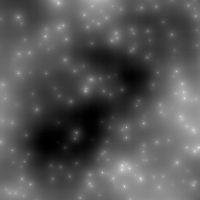Optimal signal estimators for stable Levy processes
Spring 2011
Master Semester Project
Project: 00207

In recent work, we have argued that Levy processes (in particular, compound Poisson processes) generate continuous-domain signals that are piecewise-smooth and intrinsically sparse in the Haar wavelet basis. We have also shown that the prior statistics of the samples of such processes could be deduced in closed form, resulting in a fully decoupled form that is compatible with TV-regularization. The goal of this project is to use such explicit models to derive and compare the corresponding signal estimators (MAP or minimum mean square error) to be specified both in the signal and wavelet domain.
The idea is then to use these optimal signal estimators as gold standards for the comparison and evaluation of state-of-the-art algorithms (such as TV and wavelet-based denoising) for sparse signal recovery.
Relevant paper: http://bigwww.epfl.ch/preprints/unser1003p.pdf
The idea is then to use these optimal signal estimators as gold standards for the comparison and evaluation of state-of-the-art algorithms (such as TV and wavelet-based denoising) for sparse signal recovery.
Relevant paper: http://bigwww.epfl.ch/preprints/unser1003p.pdf
- Supervisors
- Pouya Dehghani Tafti, 351 35, BM 4.142
- Michael Unser, michael.unser@epfl.ch, 021 693 51 75, BM 4.136